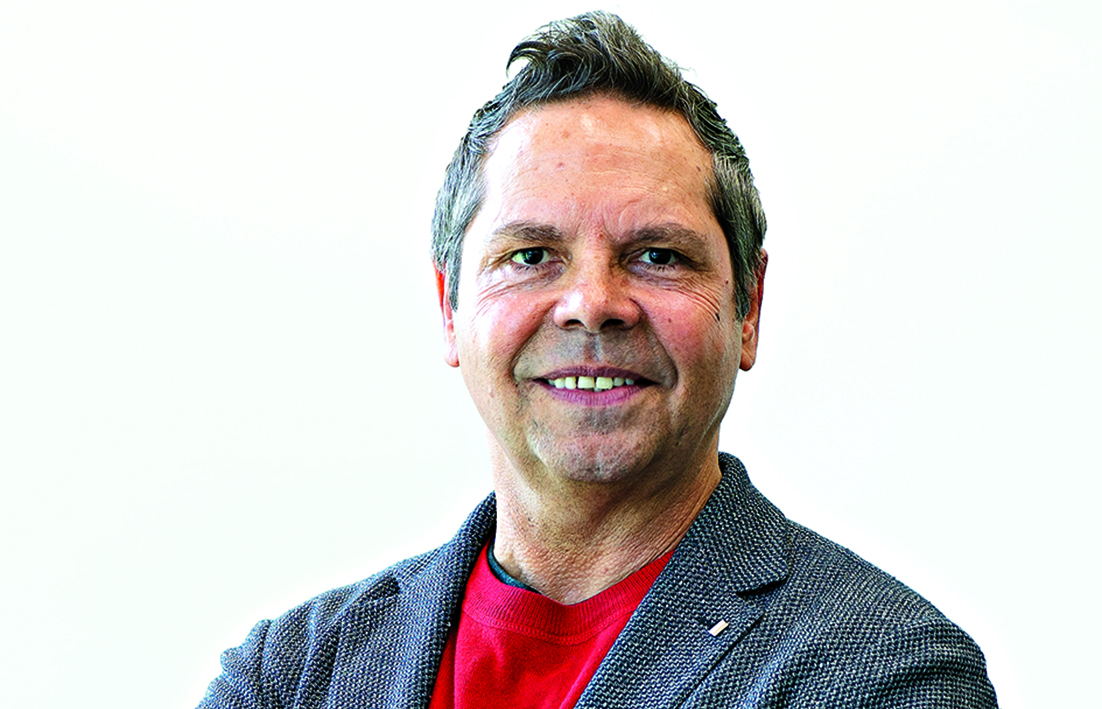
With fond memories of growing up in Lockridge and the Swan Valley, Professor Chris Lawrence, who earlier this year became Monash University’s first Dean of Indigenous Engagement for the Faculty of IT, wants to inspire Indigenous youth to follow their dreams – even if that means the final frontier of space.
In March, Professor Lawrence launched his space project, the National Indigenous Space Academy (NISA), with Monash, NASA’s Jet Propulsion Laboratory and the Australian Space Agency (ASA).
The academy has now sent five Indigenous students from universities across Australia to California for 10-week full-time internships, learning robotics, astrophysics, planetary science, engineering, computer and Earth sciences, as well as about past and current space exploration missions.
Australian Space Agency head Enrico Palmero said the agency proudly celebrates Indigenous Australians as the world’s oldest astronomers, and that they’re critical to the present and future as the organisation looks to space in a uniquely Australian way.
Professor Lawrence said he wanted to encourage Indigenous kids to take opportunities that come and go for any scholarships and internships that present themselves.
“I say to young people you have to deal with racism every day. It’s how you manage and cope to deal with those things that matter. We can all raise above racism – I know I did,” he said.
He moved to Lockridge from the Northam Aboriginal Reserve in the early ‘70s and was raised by his grandparents.
“My mum’s mother Mary took us, with her second husband Jack, who was a white man – took me and my brother. They ended up getting married to get custody of me and my brother. They didn’t have their own children, so they raised us. We had a great upbringing with Mary and Jack,” Professor Lawrence said.
From Lockridge, he and his brother would catch the bus to the closest school at St Michael’s Convent in Bassendean, before attending both Lockridge primary and high schools.
“I have fond memories of the Swan Valley where my grandparents used to pick grapes and work the vines – it’s how they made their money. I remember we would often wake up in the back of an old Holden station wagon in the vineyards while they worked,” he said.
“We were one of the first Aboriginal families in Lockridge so we used to go to the Bropho Camp (Swan Valley Noongar Community Settlement) and mix with the Aboriginal mob and their community.
“I’m related to a lot of Noongars and also have a big mob from the Midland, Swan Valley and Avon Valley areas with lots of cousins.
“There was a group of us around there, we’re all still connected. We have a ‘Locko’ group – they’re called the Locko mob. I’m connected with all my old school mates – they’ve been watching my journey.”
While he has many fond memories of his childhood, he said it was also very rough, with lots of fighting all the time, compounded with racism, being taunted with racist names that are no longer tolerated, and Aboriginal kids being told by their teachers that they would never amount to anything.
“Every Aboriginal kid had to go to see the welfare officer before class, and it seemed like the teachers hated us,” he said.
As a result, he dropped out of high school after second year, but refused to let his early childhood and experiences with teachers define him.
“I came from humble beginnings, which I talk about because I want to remind students, and especially Indigenous students’ that where you come from is important. It doesn’t matter where you are going, as long as you know where you come from.”
There were 30 applications for the internships. Of those, almost half were female. NISA has sent the top five applications (both PhDs and undergraduates) to NASA’s lab for it to allocate supervisors and timetables for their courses.
NISA has already supported three Indigenous STEM students to successfully complete an internship at NASA/JPL which Professor Lawrence set up.
“I know at least one of the five, who is female, is very ambitious about becoming the first Indigenous astronaut.
“When they and the next cohort go to the JPL, they’ll meet their own like-minded people, they’ll meet their own peeps.
“It doesn’t matter that they happen to be Indigenous, but they’ve all got this one thing, which is about space.”